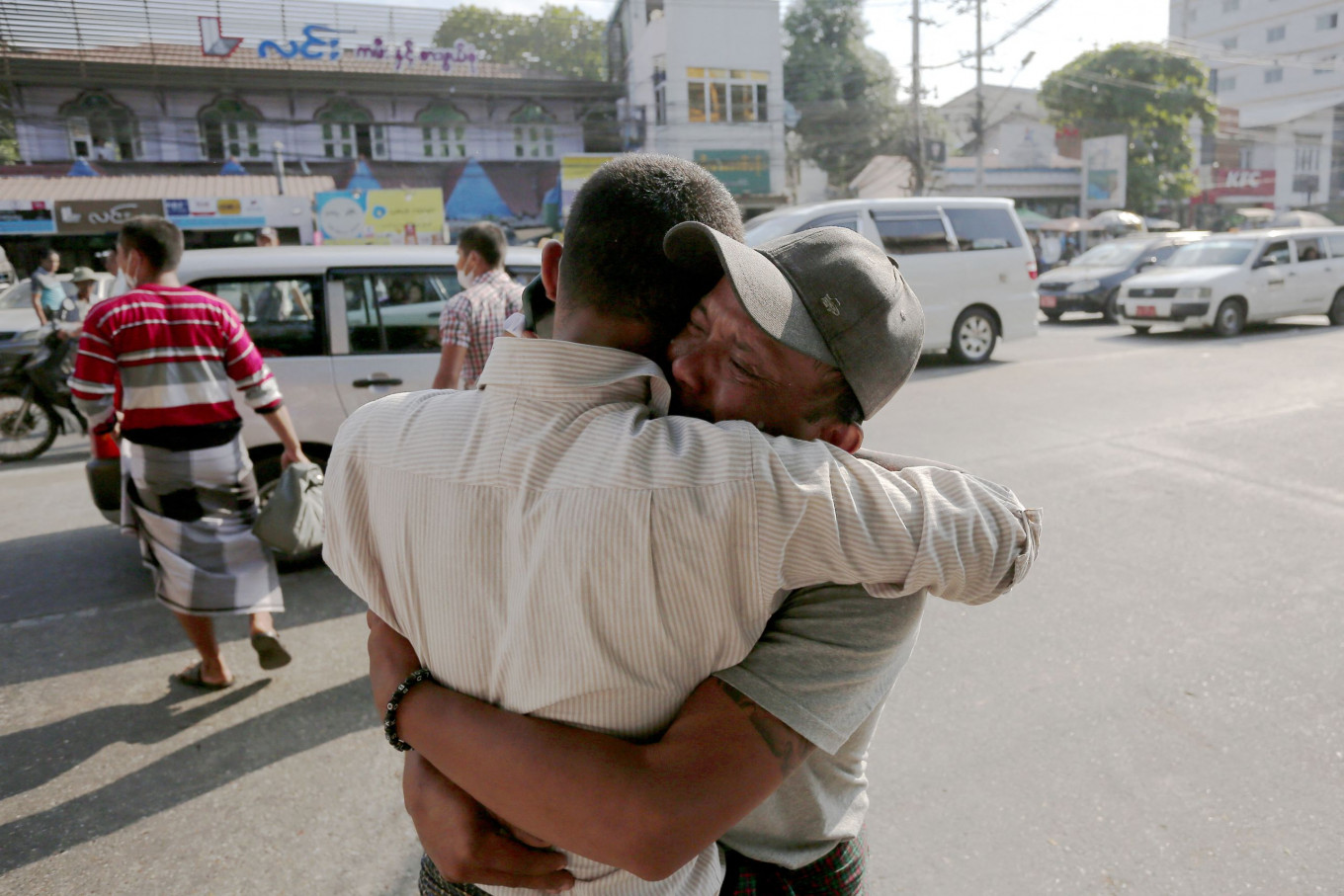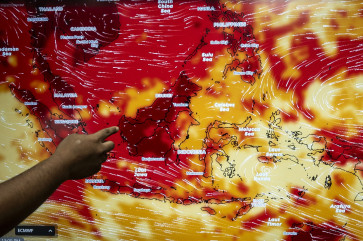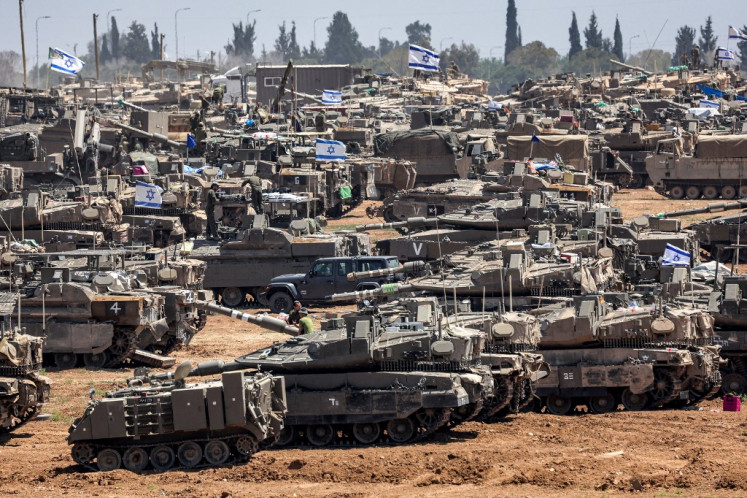Time to reframe ASEAN five-point consensus in line with ASEAN Charter
Myanmar has long experienced “political dialogues” where the military remained above the law, deploying divide-and-conquer tactics, breaking ceasefires and promises, and inciting further conflicts.
Change Size

A
pril 24 marks two years since the ASEAN five-point consensus (FPC) was issued by the ASEAN leaders following their meeting with Myanmar junta’s chief Gen. Min Aung Hlaing. Two years on, none of the points in the agreement have been implemented. The leaders themselves admit there is little progress on the implementation of the FPC.
The State Administration Council (SAC) of Myanmar has blatantly ignored the FPC. A clear example being the execution of political prisoners not long after Cambodian Prime Minister Hun Sen, the ASEAN chair that year, appealed to the SAC.
Is the FPC failing? Yes, definitely, and everyone else is too, as the crisis on the ground continues to intensify. Myanmar ranks among the countries with the most intense levels of violence and conflict deaths, next to Ukraine, and humanitarian access remains restrictive.
In fairness to ASEAN, its FPC was the only thing on the table, until the United Nations Security Council adopted its first-ever resolution on Myanmar in December after more than 70 years. Both documents remain toothless as they lack punitive measures.
Having hosted the ASEAN Leaders’ meeting with the junta’s chief and brokered the FPC, Indonesia will continue to stick with the FPC, regardless of strong calls to replace it with a new plan.
While it will not be replaced, the FPC can be reframed. An opportunity lies within the ASEAN Leaders’ review document issued last November that calls for the development of an implementation plan. Indonesia as chair this year bears the responsibility for initiating the development of such a plan, which suggests exploring other approaches.
The runway for Indonesia is very short. Within this year, there will be two ASEAN summits, in May and September, with the first coming in about a month. The approach by Indonesia as chair of ASEAN has raised serious alarm.
The ASEAN Special Envoy’s Office may have already initiated informal engagement with different stakeholders discreetly, to prepare for an inclusive political dialogue. But this approach is dangerous. Myanmar has long experienced “political dialogues” where the military remained above the law, deploying divide-and-conquer tactics, breaking ceasefires and promises, and inciting further conflicts. The same old playbook by international peace donors and brokers must not be repeated.
While quiet diplomacy may be intended to provide more room for diplomacy, it could also lead to speculation, misunderstanding and mistrust.
Given the short runway, what else can be done meaningfully by Indonesia this year?
First, go back to the basics. What happened two years ago, the coup, was not only illegitimate and illegal but also unconstitutional by the definition of the ASEAN Charter, confirmed by those involved in the drafting of the charter, which is ASEAN’s constituent instrument.
Referring to Article 2, paragraph 2 (h), the Myanmar military has violated the charter’s principles, notably “adherence to the rule of law, good governance, the principles of democracy and constitutional government”. ASEAN leaders should therefore urgently determine if the February 2021 coup contravenes the charter.
If considered incompatible with these fundamentals, ASEAN leaders should take a much harder political and principled stance against the junta this coming May.
Second, stop holding the junta’s hands. The SAC has been prevented from attending ASEAN Leaders’ summits and ASEAN Foreign Ministers’ meetings, while their representation at other ASEAN meetings is subject to review.
This unprecedented move is a form of sanction that is principled and a concrete step in the right direction, but it is ineffective if not applied to all of ASEAN’s regular meetings. ASEAN should ban those representing the junta from taking part in ASEAN’s community-building process, given that they continue to commit mass atrocities.
ASEAN’s talks with the SAC could continue, but these can take place separately, such as through special agendas or special meetings on Myanmar. But ASEAN should not give the SAC, and anyone under its structure, the privilege of having a seat representing Myanmar and the right to decide the future of ASEAN. They should not be allowed to participate in ASEAN’s institutions, forums, exercises and workshops as if the situation were normal.
This policy of non-participation of the SAC should also be applied to dialogue partners of ASEAN, where they are involved as co-chair, co-host, delegation or funding partner. Suspending Myanmar’s junta and its representatives from all ASEAN meetings and activities does not mean abandoning the Myanmar people. They will always be part of ASEAN. In fact, Myanmar people have called for this.
Third, adopt a long-term approach. To come up with a durable solution for the crisis, the challenge for ASEAN and particularly Indonesia is to create conducive conditions for medium and long-term change while mitigating short-term damage that could embolden the military’s impunity and thus continue the circle of violence.
As such, the implementation plan should employ a multi-pronged approach involving different stakeholders, particularly the pro-democracy movement and ethnic revolutionary forces. Indonesia should involve the National Unity Government (NUG) and the ethnic revolutionary organizations as soon as possible. Strong punitive measures with clear benchmarks and timelines should be included in the plan and pursued in cooperation with the UN Security Council. Different aspects of the crisis must also be analyzed and addressed comprehensively, be they human rights, political, humanitarian, social or economic.
The current situation of the Rohingya cannot be divorced from Myanmar's wider political, humanitarian and human rights crises. As such, the implementation plan should include how ASEAN will address the increasing number of Rohingya seeking refuge on the high seas, and their potential involuntary return to Myanmar under a pilot project that does not assure protection and dignity.
All of the above will be difficult to do without first determining the compatibility of the coup with the ASEAN Charter.
Meanwhile, the ASEAN Charter starts with “We, the peoples of the Member States of ASEAN”. At least 10 of 15 purposes of ASEAN are directly related to the peoples of ASEAN. But ASEAN’s response to the Myanmar crisis has contradicted the charter and pushed the Myanmar people away.
Less than eight months remain for ASEAN under the leadership of Indonesia to reframe the ASEAN FPC in line with the ASEAN Charter and the will of the Myanmar people.
Failure to do so would make ASEAN complicit in atrocities committed by the junta and the mass suffering it has inflicted on the Myanmar people.
***
Adelina Kamal is a former executive director of the ASEAN Coordinating Centre for Humanitarian Assistance (AHA Centre). Khin Ohmar is the founder and chairperson of Progressive Voice, a Myanmar human rights organization.









